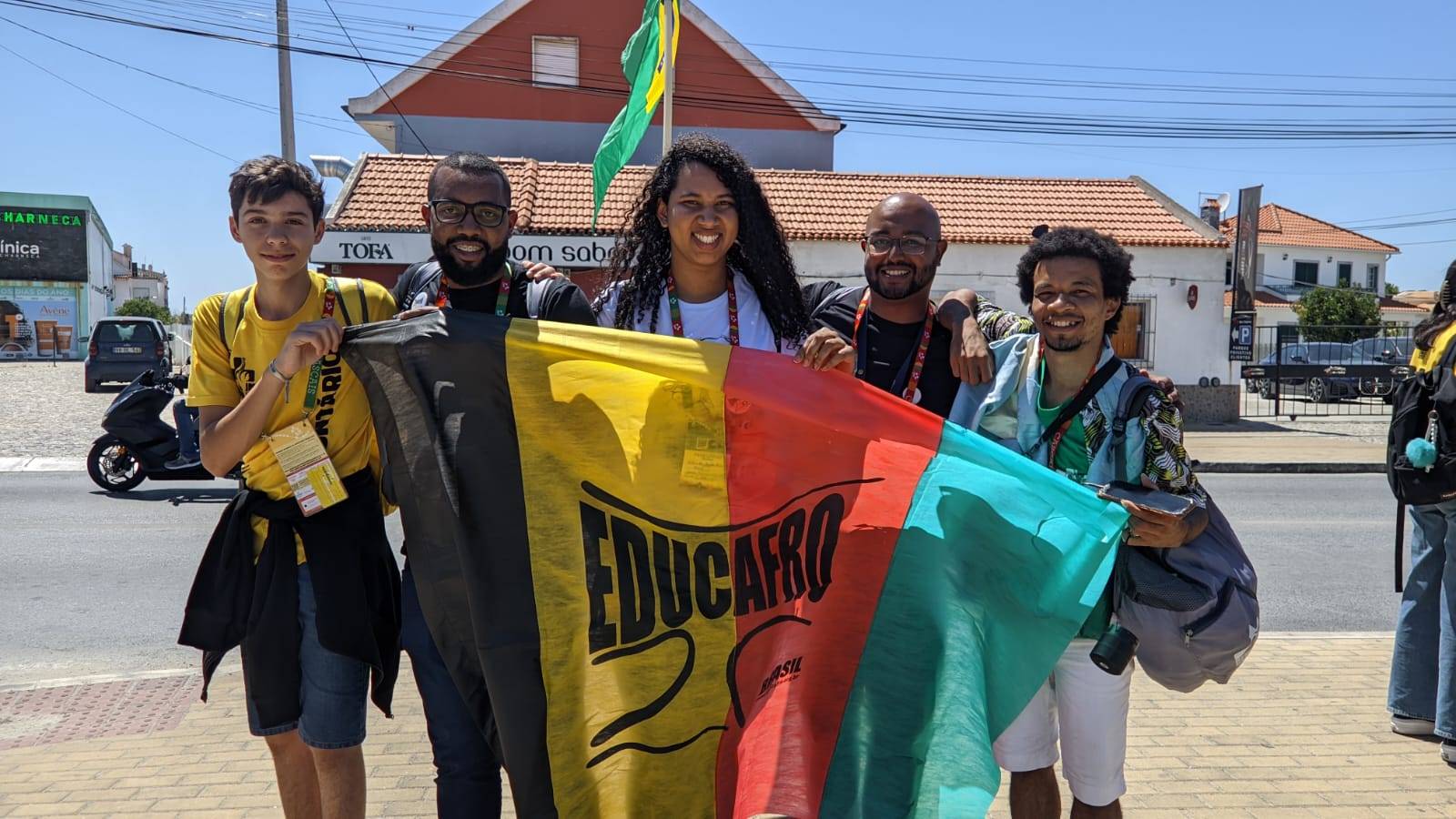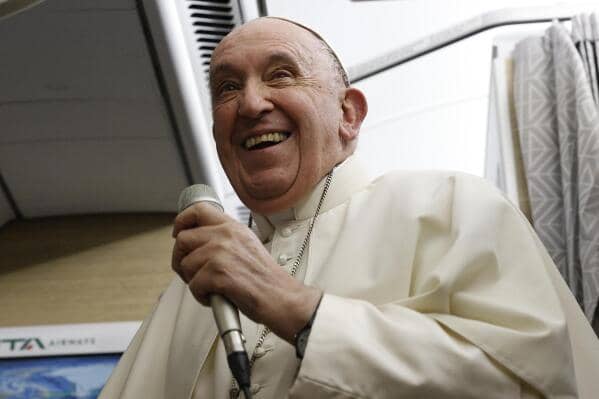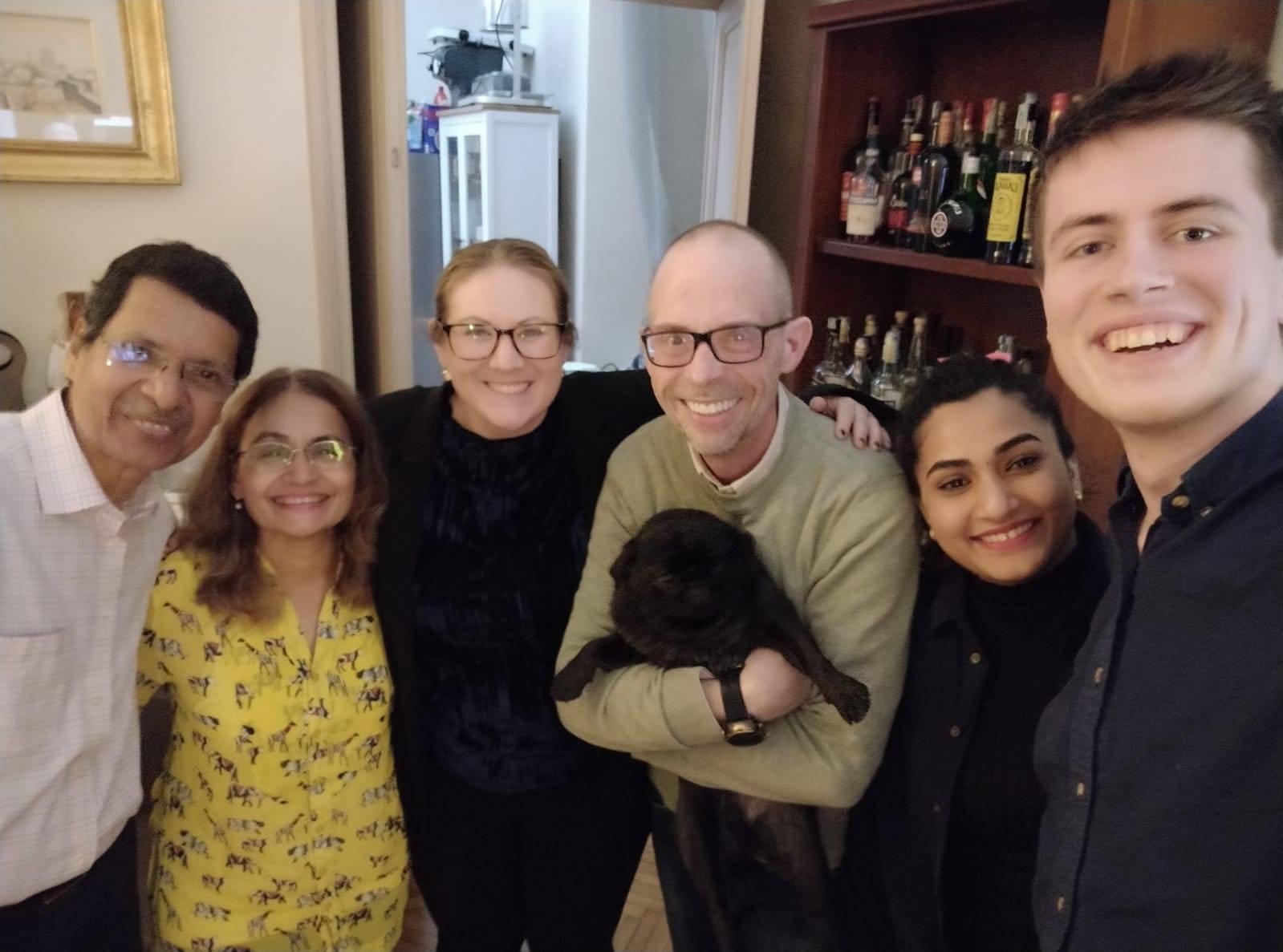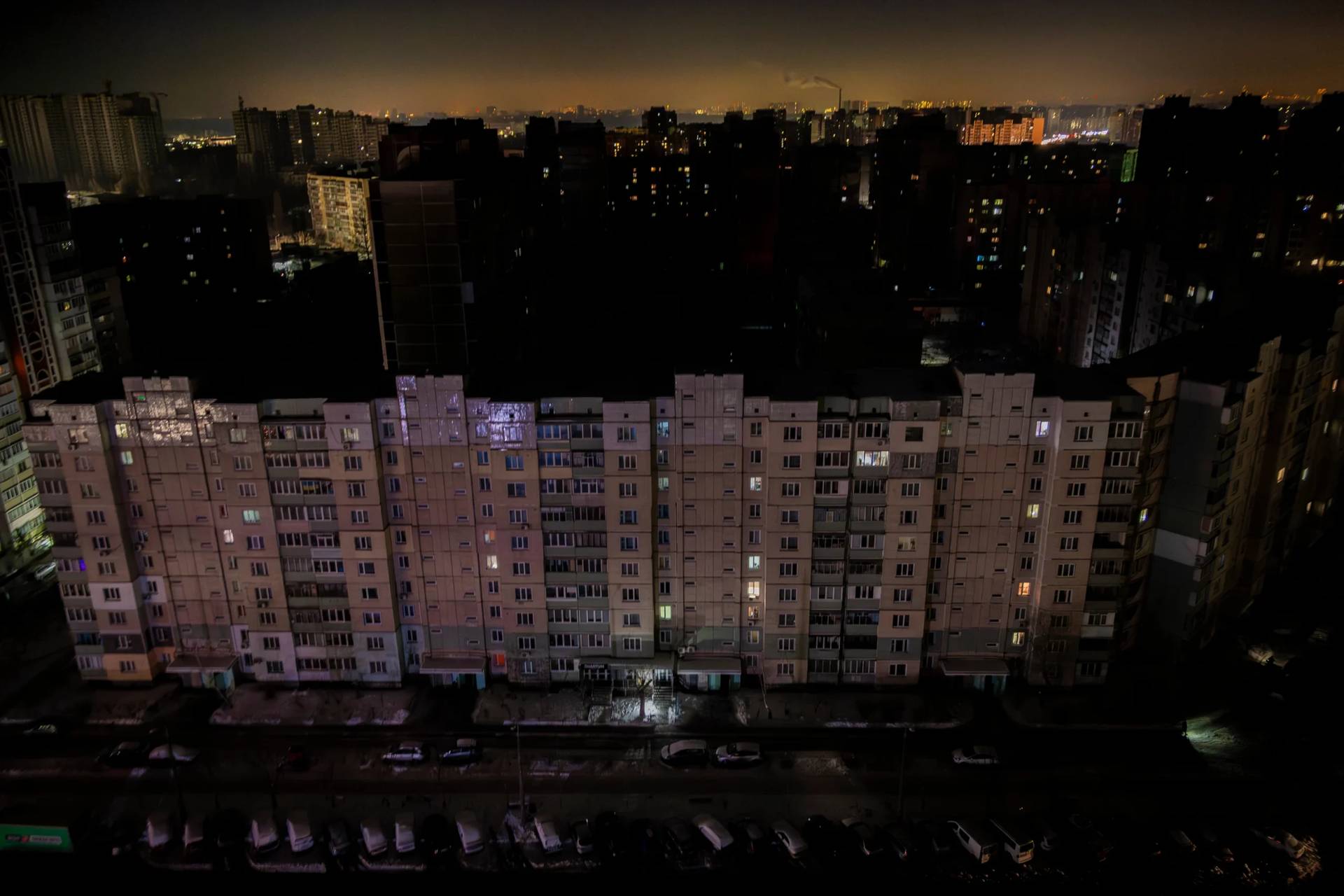LISBON – In the opening salvo of a five-day trip to Portugal, Pope Francis repeated his condemnations of populism and the inequalities of market capitalism, reiterating his main concerns regarding Europe, including migration, a declining birth rate, and growing polarization.
In that context, the pope said he believes World Youth Day represents hope for the future and a desire on the part of future generations to write a different story together based on pluralism and respect for life.
“At a time when we are witnessing on many sides a climate of protest and unrest, a fertile terrain for forms of populism and conspiracy theories, World Youth Day represents a chance to build together,” he said, saying the event “revives our desire to accomplish something new and different, to put out into the deep and to set sail together towards the future.”
Pope Francis arrived in Lisbon Wednesday morning, kicking off his August 2-6 visit by speaking to civil authorities and the diplomatic corps in Portugal ahead of scheduled private meetings with both Portuguese President Marcelo Rebelo de Sousa and Prime Minister Antonio Costa.
Prior to leaving, the pope met with a group of young people who are currently undergoing rehab, though the Vatican did not disclose for what, and are therefore unable to attend World Youth Day. Among the group were three grandparents with their grandchildren, as a sign of the intergenerational ties of which Pope Francis so often speaks.
His primary motive for coming to Portugal is to participate in the international World Youth Day (WYD) event, established by Pope John Paul II in 1986 and typically held every three years. This year’s gathering, originally slated for 2022, was delayed due to COVID-19 and is the first WYD since the pandemic.
It marks the pontiff’s fourth global WYD gathering. His first-ever international trip was for WYD in Rio de Janiero in 2013, just a few months after his election. He then attended WYD events in Krakow in 2016 and in Panama in 2019.
Many have expected the pope to be more subdued during this week’s event given his recent health challenges, including chronic sciatica and knee pain, as well as two hospital stays this year and two surgeries in as many years.
However, on his flight from Rome to Lisbon Pope Francis indicated the opposite, telling journalists on board that he would still “stir things up” and saying he would come back “rejuvenated.”
In his speech Wednesday morning, Francis praised “the cosmopolitan face of Portugal,” pointing to its multiethnic and multiculturally diverse population.
Noting that Lisbon was the site of the signing of the Treaty of Lisbon in 2007, he said Portugal can have a unique role to play in helping Europe, and the west, navigate the challenges it faces due to war and the migration and climate crises.
“Lisbon is the most westerly capital of continental Europe and thus speaks to us of the need to open ever broader paths of encounter,” he said, voicing hope that WYD would be “for the ‘Old Continent’ and impulse towards universal openness.”
Europe is tasked with being “a bridge and peacemaker,” and it must be a protagonist in forging processes of dialogue and inclusion.
Pope Francis challenged European authorities over their inability to resolve the conflict in Ukraine and again criticized the global arms trade, asking of Europe, “Where are you sailing, if you are not showing the world paths of peace, creative ways for bringing an end to the war in Ukraine and to the many other conflicts causing so much bloodshed?”
More broadly, Francis asked, “West, on what course are you sailing? Your technologies, which have brought progress and globalized the world are not by themselves sufficient, much less your highly sophisticated weapons, which do not represent investments for the future but a depletion of its authentic human capital.”
Francis condemned investment in arms rather than “the future of the young” through initiatives in education, welfare, and health.
He called for Europe to use its resources to settle conflicts and light “lamps of hope,” saying the world needs Europe to be “inclusive of peoples and persons, without chasing after ideologies and forms of ideological colonization.”
The pope also criticized what he said was a “creeping utilitarianism” which “uses life and discards it.”
In this regard, he pointed to the “many unborn children and older persons who are abandoned,” as well as the many migrants coming to Europe and the increasing number of families who refuse to have children.
“Where are you sailing, Europe and the West, with the discarding of the elderly, walls of barbed wire, massive numbers of deaths at sea and empty cradles? Where are you sailing if, before life’s ills, you offer hasty but mistaken remedies: like easy access to death?” he asked.
Against this backdrop, Pope Francis said WYD is a source of hope which can help Europe recover its own youthful dynamic and creatively build a better future.
The pontiff suggested the environment, the future, and fraternity as three “construction sites of hope” for Europe and the West.
Young people, he said, “are the future. Yet they encounter much that is disheartening,” such as high rates of unemployment, increased costs of living, and a growing fear of getting married and having children.
Francis repeated his ongoing concern for falling birthrates throughout Europe and the West, saying a healthy politics requires “reversing the fall in the birth rate and the weakening of the will to live.”
“It can be a generator of hope. It is not about holding on to power, but about giving people the ability to hope,” he said, saying, “Today more than ever, it is about correcting the imbalances of a market economy that produces wealth but fails to distribute it, depriving people of resources and security.”
“Political life is challenged once more to see itself as a generator of life and concern for others” through policies that invest in families and in children, promoting “intergenerational covenants that do not cancel the past but forge bonds between young and old.”
Pope Francis said Portugal with its diverse population is a place of “closeness and solidarity.”
“Yet in the broader context of a globalization that brings us closer but fails to create fraternal closeness, all of us are challenged to cultivate a sense of community, beginning with concern for those who live close by,” he said.
He urged citizens to pursue the common good together while “leaving behind our conflicts and differing viewpoints.”
An example of this are the young people who come to participate in WYD, “who with their pleas for peace and their thirst for life, impel us to break down the walls of separation erected in the name of different opinions and creeds,” he said.
Francis closed praising initiatives of the local church to assist elderly people who are alone, saying the local church “quietly and unobtrusively does so much good.”
“Let us all feel called, as brothers and sisters, to give hope to the world in which we live, and to this magnificent country,” he said.















